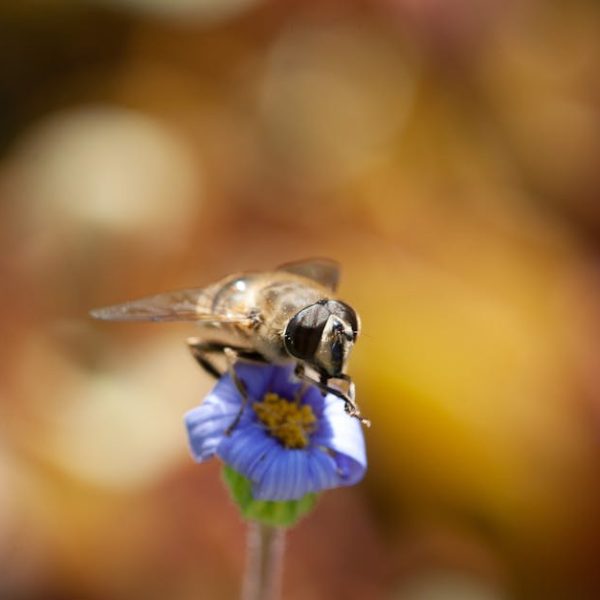Fruit flies are a common pest that can invade your home at any time. They’re small, quick, and are attracted to anything sweet or fermented, meaning they’re particularly fond of the fruit bowl on your kitchen counter. Despite their tiny size, these insects can become a massive nuisance if left unchecked. But before you contemplate moving, let’s explore the most effective and easy deterring methods to keep fruit flies away.
Cleaning and Maintenance Practices to Prevent Fruit Flies
There’s a common saying, Cleanliness is next to godliness. In this case, it would be more accurate to say, “Cleanliness is next to fruit fly-less.” Maintaining cleanliness, primarily where fruits and vegetables are stored, plays a critical role in deterring fruit flies. These flies adore the sticky sweet trail left by overripe bananas or the tantalizing aroma of a ripening peach. Taking common-sense steps to keep your kitchen tidy can significantly reduce the chances of a fruit fly infestation.
Here are some top tips:
- Make sure you clean countertops and dining areas regularly. Wipe down any sticky residue from fruit or juice immediately.
- Do not let overripe fruits and vegetables linger. Dispose of them quickly, or use them up in smoothies, sauces, or compost.
- Keep your garbage bins closed, taking the trash out regularly, particularly if it contains fruit scraps.
Adequate Storage to Keep Fruit Flies at Bay
How you store your fruits and veggies can either invite or discourage fruit flies from making themselves at home. Keeping fruits and vegetables refrigerated is a great way to keep them fresh, inhibit the growth of mold, and avoid attracting fruit flies.
Here’s what to do:
- Get in the habit of storing most of your fruits and vegetables in the fridge—only leaving out what you plan to eat within a day or two.
- If you can’t avoid keeping certain produce items out, consider using fine-mesh bags to minimize fruit fly access.
- If fruit bowls are your thing, ensure you do not overstock them to prevent hidden squishy surprises at the bottom.
Here’s a quick table comparing storing fruits in the refrigerator versus leaving them out at room temperature:
| Refrigerator | Room Temperature | |
|---|---|---|
| Pros | Keeps fruits fresh, prevents mold growth, reduces fruit fly attraction | Can sometimes improve flavor, no need for fridge space |
| Cons | Some fruits don’t do well in the cold, requires fridge space | Faster ripening can lead to wasted fruit, attraction of fruit flies |
Stay tuned for plenty more accessible tips in parts two and three of this article. We’ll delve into natural repellents you can concoct right at home, professional fruit fly traps, and when and how to reach out to pest control experts. Better yet, these fruit fly deterring methods are practical and accessible. There goes your excuse to ignore the fruit fly problem!
Natural Repellents to Discourage Fruit Flies
Besides keeping your kitchen clean and your fruits well-stored, there are some natural methods you can try to dissuade fruit flies from invading your home. These methods use everyday kitchen items, making them easy-to-apply, non-toxic solutions.
Firstly, cider vinegar and dish soap make a compelling duo. The scent of the cider vinegar is irresistible to fruit flies, while the soapy surface makes it difficult for them to escape once they land.
Secondly, consider using essential oils such as eucalyptus or lemongrass. These scents are not pleasant to fruit flies and can effectively discourage them from your fruits and veggies.
Keep these best practices in mind when using natural repellents:
- Ensure your cider vinegar trap is placed near the source of the fruit fly problem, like sinks or fruit bowls.
- Essential oils should be used sparingly, as their potency may cause irritation if too much is applied.
Professional Fruit Fly Traps
Sometimes, the fruit fly infestation may require professional help. In these cases, there are commercial fruit fly traps available in the market. These traps often contain a mix of attractants such as fruit extracts to lure fruit flies into the trap where they meet their end.
Though they may be more costly than home remedies, their effectiveness is generally superior. However, remember to place them correctly, preferably close to the infestation source.
Consider the pros and cons of using professional traps versus DIY repellents:
| Professional Traps | DIY Repellents | |
|---|---|---|
| Pros | Usually more effective, easy to use | Cheap, chemical-free, use common household items |
| Cons | Can be pricy, potentially toxic | May require frequent application, may not work for large-scale infestations |
Reach Out to Pest Control Experts
When all else fails, it’s time to call in the professionals. Severe infestations typically require more than simple DIY traps and regularly cleaning. Certified pest control services can provide the proper treatment to ensure your home is rid of the fruit fly menace.
You should consider seeking professional help if you notice:
- An increase in the number of fruit flies, despite using preventive measures.
- Frequent recurrence of fruit fly infestations.
Remember these points when choosing a pest control service:
- Check for certification and testimonials
- Ask for a quote and compare prices
- Ensure they offer a post-treatment follow-up
At the end of the day, keeping fruit flies at bay requires a combination of these methods. From maintaining cleanliness to using repellents and professional services, the approaches vary based on the size of infestation and what works best for you. But with the information provided, you can now prepare to tackle any fruit fly problem that comes to your way!
Key Takeaway:
- Maintaining cleanliness in the kitchen and disposing overripe fruits promptly can deter fruit flies.
- Proper storage of fruits and vegetables, especially refrigeration, can significantly reduce the chances of fruit fly infestation.
- Natural repellents like cider vinegar and essential oils can be used to deter fruit flies.
- Professional fruit fly traps available in the market can handle larger infestations effectively.
- In cases of severe and recurring fruit fly infestations, certified pest control services should be considered.
Despite their tiny size, fruit flies can become a significant nuisance if left unchecked. However, with these easy, practical methods, you can ensure a fruit fly-free home. Always remember, prevention is better than cure, so keep your kitchen tidy, store your fruits properly, and use natural repellents if needed. Your diligent efforts will pay off with a clean, pest-free kitchen.
FAQs
Q: Can fruit flies harm humans?
A: Fruit flies do not bite or sting humans, so they are not harmful in the traditional sense. However, large infestations can contaminate food with bacteria and other disease-causing organisms.
Q: Is it necessary to use professional traps for small fruit fly infestations?
A: Not necessarily. Small infestations can often be controlled with proper cleaning and maintenance practices, along with natural repellents. Professional traps are usually needed for larger, more stubborn infestations.
Q: Are there any other insects that can be deterred with these methods?
A: While the focus of this article is on fruit flies, these methods can also help deter other types of flies and pests that are attracted to food and kitchen waste.
Q: Can overripe fruits kept in the refrigerator still attract fruit flies?
A: Generally, fruit flies are attracted to the smell of overripe fruits, which is significantly reduced when fruits are refrigerated. Hence, the chances of attracting fruit flies are far lesser with refrigerated overripe fruits.
Q: How long does it generally take to get rid of a fruit fly infestation?
A: The time it takes to get rid of a fruit fly infestation can vary based on the size of the infestation and the techniques used. While some may see results in a couple of days, others with larger infestations may need a week or more.
Don’t forget to share this article if you found it helpful, and explore more posts on our website for similar insights and guidance!






